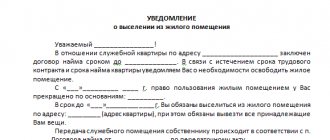You are in a situation where you cannot privatize an apartment because your relative, who is also included in the order or is simply registered in the apartment as a member of the tenant’s family, is against it. Now we will briefly analyze this situation and give some advice from a lawyer on this issue.
ATTENTION : our housing lawyer will help you sort out not only the problem with privatization, but also resolve another issue: professionally, on favorable terms and on time. Call us today!
Whose consent to privatization is required?
Taking into account thematic legislative standards, the basic conditions can be listed:
- participation in privatization involves voluntary actions;
- All residents with permanent registration have the right to apply for a share;
- Minor children are required to receive a portion of the property.
Based on the noted nuances, it is clear that in this case family ties do not matter. If the husband is registered at a different address, his participation in privatization is excluded. It should be emphasized that the rights of jointly acquired property do not apply to municipal property.
It is impossible to privatize an apartment without the consent of one registered temporarily absent tenant. In addition to people performing duties under an employment contract (rotation work, expedition), the following persons are included in this category:
- military personnel;
- students;
- convicts.
Important! After returning, the temporarily absent tenant has the right to cancel the privatization agreement with the return of the property by a court decision to the ownership of the municipality.
Legal requirements
Based on the Law “On Privatization...” dated July 4, 1991. (Article 2) every citizen of the Russian Federation can become a participant in privatization once and on a voluntary basis .
All persons registered in it, including minors, have the right to privatize a specific residential premises.
Citizens temporarily registered or living in premises without registration do not participate in the process.
Before you begin to obtain the consent of registered residents, it is worth finding out whether they have the right to participate in the process by law. It is not required to obtain permission from the following persons:
- tenants living under a sublease agreement;
- persons who previously participated in the privatization of another object;
- citizens discharged from their living space by court decision (even if they did not have time to deregister and did not want to).
How to privatize an apartment if one of the residents is against it?
Persons registered in the apartment and who do not fall into these categories for privatization must express their consent in writing . Without a notarized document, it will be impossible to register property.
Therefore, before you start collecting documents and submitting an application, it is worth reaching an agreement between the residents. It is impossible to force residents to write consent by law, so you will have to act through persuasion and persuasion.
The result of the negotiations should be obtaining consent from the residents or their voluntary renunciation of the share.
You might be interested: what benefits can you get on a mortgage when you have children?
Refusal from privatization
Due to the voluntary nature of the procedure, residents are not required to receive private ownership of the property. But privatization of an apartment without the consent of those registered is impossible. Possible reasons for refusal should be listed in order to obtain information about possible methods of negotiation:
- lack of time or desire to re-register;
- poor sanitary (technical) condition of the apartment;
- the need to pay for major repairs and real estate taxes after registering the property as private ownership.
Such a person retains a lifelong right to reside at this address, which is a significant encumbrance for the future disposal of real estate.
The refusal is drawn up in any form and certified at a notary office. You cannot draw up a document in favor of another person or on behalf of a minor child.
To save money, you can sign (confirm your consent to privatization) in the presence of an authorized administration employee when submitting a package of documents. Some municipalities require a notarial waiver. For a detailed study of thematic issues, it is recommended to study a special publication on our website.
For your information! Parents must obtain permission from the guardianship authorities if they are acting on behalf of the child. You can privatize an apartment only by allocating shares to all minor family members.
How to negotiate without court on privatization with someone who is against it?
You can try to negotiate with a person who is against privatization without going to trial in several ways, it all depends on which person is against privatization and why.
If an elderly family member does not want to participate in privatization so as not to pay high taxes, then you should calculate the approximate amount of tax for such a person and explain to him that in fact the tax will not be that high.
If a person does not want to participate in the privatization of a specific premises, but also does not want to move out of it, then it is necessary to explain to such a person that he has the right to refuse privatization of the disputed housing, while he will be able to exercise his right to privatization in the future, as well as him the right to use the disputed residential premises will be retained, which can be terminated only if he leaves for another place of residence.
Thus, taking into account why this or that person does not want to participate in privatization, you can try to explain to him his rights and show him the advantages of privatizing housing or refusing privatization.
Allocate a share in an apartment
This method is used to privatize part of the property if one or more residents decide to continue using it under a social tenancy agreement. It is understood that the apartment will remain municipal after the allocated share is transferred to private ownership.
To implement such a plan, the owner's consent is required. In fact, after allocating a share in kind, two objects are formed that must meet the criteria for residential real estate. This condition significantly limits potential opportunities. In accordance with current building regulations, for example, the total area cannot be less than 28 square meters. Other requirements:
- maintaining the strength of the building's load-bearing frame;
- separate exit to the landing;
- equipping with utility networks;
- availability of a separate kitchen and bathroom.
Similar actions are carried out during the planned reconstruction of buildings. During the period of work or permanently, residents are relocated to other apartments. You can independently allocate a share in kind only after registering the apartment as private property. During privatization, an “ideal” distribution of parts is established (1/2, 1/3 or other).
How to privatize an apartment without the consent of one registered tenant to obtain state property as personal property? You can apply the division of social rental contracts. In this option, part of the property must meet the following criteria:
- separate entrance (no-passage room);
- availability of heating and electricity;
- residential purpose (natural light source).
Important! If a person does not agree with the distribution of shares, he will have to look for another method.
List of documents
When contacting a specialized unit of the municipality, they provide:
- application for concluding a social tenancy agreement;
- civil passports;
- a notarized agreement with other residents on the distribution of premises;
- certificate of registered persons from the Ministry of Internal Affairs;
- documents confirming divorce.
Procedure
At the preparation stage, you need to agree with other residents on the distribution of rooms. To eliminate problems in the future, they establish a certain procedure for using the kitchen and other common areas. The agreement is certified by a notary. At all stages, documents are signed by parents (adoptive parents, guardians) on behalf of minor children. Next, they transfer the documents to the municipality for drawing up separate social tenancy agreements.
For your information! If the ex-spouse is not registered, his consent to privatize the apartment is not required.
Approximate terms and cost
The local administration communicates the decision no later than 60 days from the date of application. For notarization, the state fee is 100 rubles if the document does not contain a value. Additional payment:
- engineering works;
- visit of a lawyer to the customer’s address;
- performing certain actions under a power of attorney.
Discharge of a minor citizen
The most problematic category of citizens in matters of eviction from an apartment are minors. Even if there is consent for the child’s discharge from both of his parents, this is often impossible.
There are several conditions for how to discharge a minor child from a privatized apartment, which must be met:
- The child must be evicted together with his parents (one of them) or legal representatives (guardians, trustees).
- A prerequisite is having a new place of residence, according to which the child will be registered immediately after being discharged from the apartment. You cannot discharge a minor to nowhere.
Wherein new living space on your own terms shouldn't be worse old. For example, the number of square meters in general and per child must be equal to or exceed the value that was in the previous apartment.Also, new housing cannot be older or dilapidated than the previous one - this is considered a deterioration in the child’s living conditions and is not permitted by law.
- If the child owns a share of the apartment, his deregistration can only be carried out if there is permission from the guardianship and trusteeship authorities .
An application for deregistration can be written by the minor himself (if he is already 14 years old) or one of his legal representatives. It is submitted along with a package of documents to the passport office, MFC or other body that deals with similar issues.
You will find more information on how you can discharge a minor in a separate article, and you will learn about on what grounds and under what conditions the apartment owner can do this here.
Eviction through court
It is impossible to force privatization without the consent of one registered tenant. However, a solution to the problem is permissible on the basis of an appropriate court decision. To evict you must prove:
- violation of obligations under a social tenancy agreement;
- impossibility of living together for other objective reasons.
In the first case, the municipality initiates the proceedings. In the second - residents. On a private initiative, you can submit an application taking into account the following actions of the defendant:
- long absence, moving to another address of residence;
- refusal to pay housing and communal services (debt - more than 6 months);
- threats to life and health;
- intentional damage to equipment, causing other damage to property;
- antisocial behavior, disturbance of peace at night;
- creating obstacles to the use of corridors, kitchens, and other common areas;
- use of residential premises for production and other commercial activities.
You can demand eviction if a person has a dangerous disease. This reason is considered in a special manner, taking into account the expert opinion of the medical commission. In some situations, the court obliges the municipality to provide alternative housing under a social tenancy agreement.
List of documents
Along with the statement of claim, the following is submitted to the district court:
- a valid social tenancy agreement, divorce certificate (copies);
- certificate of registered residents;
- confirmation of payment of utilities and state fees (for filing a claim).
Sample statement of claim
Procedure
The presented algorithm is adjusted taking into account the real situation:
- apply in writing to the municipality (divisions of the Ministry of Internal Affairs) with complaints, receive written responses;
- record violations, collect convincing evidence of their innocence;
- submit the statement of claim and accompanying documents to the court;
- the final decision is used for forced eviction.
Approximate terms and cost
It is impossible to determine the exact preparation time. Judicial formalities are determined by current regulations (months):
- duration of proceedings – 2;
- consideration of appeals – 2;
- return of the case to the district court – 1;
- registration of the final decision, eviction by the bailiff service – 2.
Expenses (RUB):
- state fee for filing a claim (notarization) – 300 (100);
- legal advice and preparation of documents – from 1,500 to 4,000;
- professional support, representation of the client’s interests during legal proceedings – from 6000.
Help from a lawyer in Yekaterinburg
If you are unable to figure out a solution to the problem on your own, you can work with the person who is abusing his right, or independently contact the lawyers of our Law Office “Katsailidi and Partners” in Yekaterinburg to conduct a mediation procedure or initiate a legal dispute between co-tenants.
During the consultation, our lawyer will comprehensively review your situation and determine the correct legal way to resolve the conflict while respecting the interests of the applicant.
Arbitrage practice
When preparing a statement of claim, you need to carefully study the initial situation. In practice, when considering a case, the court takes into account, in addition to the main evidence, the following factors:
- the financial situation and ability to work of the defendant;
- availability of alternative housing;
- technical feasibility of allocating a share.
You cannot forcibly evict without simultaneously providing other housing:
- disabled people (1st, 2nd grade);
- old age pensioners;
- family members of residents who died in the line of duty (military personnel, employees of the Ministry of Internal Affairs, etc.);
- minor children and dependents.
To resolve complex issues, they turn to explanatory documents that have legal significance. Thus, by a separate definition, the Supreme Court of the Russian Federation established the mandatory consent of all registered residents. The person who took part in the privatization must authorize the procedure. If he refuses, he cannot be forcibly evicted. The right of lifelong residence (registration) is retained.
Rights of share owners
Housing can be divided into certain parts. This is possible at the time of purchasing an apartment or home ownership, that is, when a person did not buy the entire property, but only part of it, or when the court made a decision on the division of property. The last case is typical for the annulment of marriage and family relations. In this case, the housing will belong to several owners. Moreover, each of them is endowed with unlimited rights in relation to its part. That is, it can be given, sold, exchanged, rented out.
Selling Features
Selling your part of the home has some peculiarities. In this case, the rules established by Article 250 of the Civil Code of the Russian Federation are applicable. This rule establishes the so-called purchasing advantage. The essence of this concept is that if a person intends to sell his part, then first the opportunity to purchase belongs to other homeowners. In such cases, the initiator is obliged to notify them of his intention in writing. Such a document must contain information about the owner’s decision, as well as the value of the share. In this case, the initiator must have on hand documentary evidence of the fact that the owners received the notification.
If within one actual month after receiving the notifications, the share has not been purchased by other participants, then the owner has every right to sell his share to anyone.
You cannot transfer your rights to the benefits of a purchase. If the established procedure for the sale of part of the real estate has been violated, then any participant can appeal to the court within three actual months.
Do I need my spouse's consent?
Quite often there are situations when ex-husband and wife live in the same apartment or household, and each of them owns a certain part of the housing, which was received through privatization. In this case, each of them has the right to freely dispose of their share, including selling it. But you will have to comply with the rule of preferential purchase of shares.
It must be borne in mind that if the apartment was privatized by one of the spouses, even during marriage, then such housing cannot be common and cannot be divided between them during a divorce.
Useful tips for residents
To obtain consent for privatization, it is necessary to remove obstacles to the desired solution. The following recommendations will help you get a positive result.
Carrying out the necessary actions when acquiring real estate into private ownership is indeed fraught with certain difficulties. If we are talking about reluctance to participate in a tedious procedure, they suggest issuing a power of attorney to an authorized person. A notary can be called to your home to certify the document.
Some municipalities offer a convenient option for remote submission of applications on the official website. Similar services are provided by MFCs. It should be emphasized that privatization is free of charge for any registration option. The exception is field services, which are paid according to approved tariffs.
To obtain the consent of one of the residents, financial arguments can be used. If the reason is unwillingness to pay property taxes, they offer compensation in the amount of the calculated amount of mandatory payments for a long period.
Options for resolving the issue
The main reasons for the disagreement of some of the residents with privatization are most often:
- unwillingness to pay property taxes annually;
- independently monitor the technical condition of the premises and communications;
- fear of “staying on the street” if relations between relatives are strained;
- the inability to subsequently privatize another apartment (with a larger area or, for example, amenities);
- lack of time to participate in privatization
- simply an unwillingness to make concessions to other residents due to hostile relationships or unwillingness to subsequently exchange an apartment (for example, an ex-husband does not want to leave his ex-wife and child, etc.).
If you still have a desire to privatize municipal housing, then there are only three ways:
- Voluntary agreement . You will have to come to an agreement with each of the residents. This is the least expensive method, but not always effective. However, it is worth remembering that you cannot resort to illegal methods of persuasion, because your actions may be qualified under one or another article of the Criminal Code of the Russian Federation.
- By court decision. Only this authority is authorized to authorize privatization without the consent of some residents. For example, if the whereabouts of one of the relatives is unknown, then an application is submitted to the court to declare the person missing or dead. Or you can try to discharge the person from the municipal apartment. We have already talked about the reasons for this and how to do this. The court verdict will serve as a permitting document for privatization without consent.
- Privatization of part of the housing. This is only possible if there is an option to allocate a share in kind. You can learn about this procedure here.
Example. Smirnova I.L. lived in a municipal apartment. with two sons Sergei and Leonid. The eldest (Sergey) has not lived with his mother and brother since 2010; he went to work in another city, but was not deregistered. In 2021, Smirnova decided to privatize the apartment. Leonid did not object, but Sergei refused to come for this procedure. No amount of persuasion or requests to issue a notarial refusal had any effect on him.
Then Smirnova filed a lawsuit to recognize her eldest son as having lost the right of ownership to use the housing. The court satisfied her demands, since Smirnov S. really did not live in the apartment for a long time, and this is the basis for deregistration. With the court decision, Smirnova turned to the Department of Internal Affairs of the Ministry of Internal Affairs of the Russian Federation and discharged her eldest son. Then, in the usual manner, she filed an application for privatization with the municipality, and the apartment was registered as her property, as well as the property of her youngest son (Leonid) in equal shares.
Inheritance
Inheritance of a privatized apartment without a will , if a person is registered, will be carried out in the order of priority established by current legislation, but with one significant caveat.
In the event that, in addition to such a person, there are other applicants , but they are not registered in this living space , then the registered person will have the priority right of inheritance, despite the degree of relationship in a particular line.
Thus, registration in a privatized apartment is quite advantageous from a legislative point of view (since it opens up fairly broad horizons for using one’s property on a legal basis) and from an economic point of view, since such a person has much more economic rights than unregistered.
At the same time, in some situations, it is more convenient if registration for such living space was carried out even before the transfer of the apartment or house from state or municipal property to private property.
Regarding the issue of taxation, you can find out more about this here.
Registration without ownership rights
The owner of municipal real estate remains the municipality, even if new persons are registered. It is he who has the opportunity to dispose of the housing stock. Therefore, registration without ownership rights is carried out in all cases. It only provides a place to live. The possibility of acquisition arises only after privatization by mutual agreement between all those registered.
Rights of residents in a non-privatized apartment
Such real estate is different from your own. But the difference is small, except for the ability to make transactions. This is only permissible if there is a title document. The rights of a tenant in a non-privatized apartment are as follows:
- use for one's own purposes;
- further registration of property;
- moving in children under the age of majority;
- obtaining another municipal housing in the event of an emergency or exchange.
The possibility of privatization plays a key role. It is important for an employer to think before registering someone. The rights of those registered in a non-privatized apartment are lost only after deregistration. Otherwise they are the same as those of other individuals.
Rental
Registered people can not only personally stay in the apartment, but also receive money for it. It is possible to rent out individual rooms and the entire property. Even in the first case, there should be no opposition from residents. Many people are interested in whether it is possible to rent out a non-privatized apartment. It is necessary to obtain the consent of all registered persons. Then a formal contract is concluded with the tenant for the required period.
After the death of the tenant
If the tenant was registered alone, the right of residence to interested persons is not granted. The property is transferred to the municipality. He passes it on to others in need.
After the death of the tenant, the non-privatized apartment remains with the registered citizens. An employer is selected from among them and will enter into a new contract on the same terms.
If the main tenant in a non-privatized apartment dies, relatives can obtain his powers in court. This applies to those persons who did not live with him.










